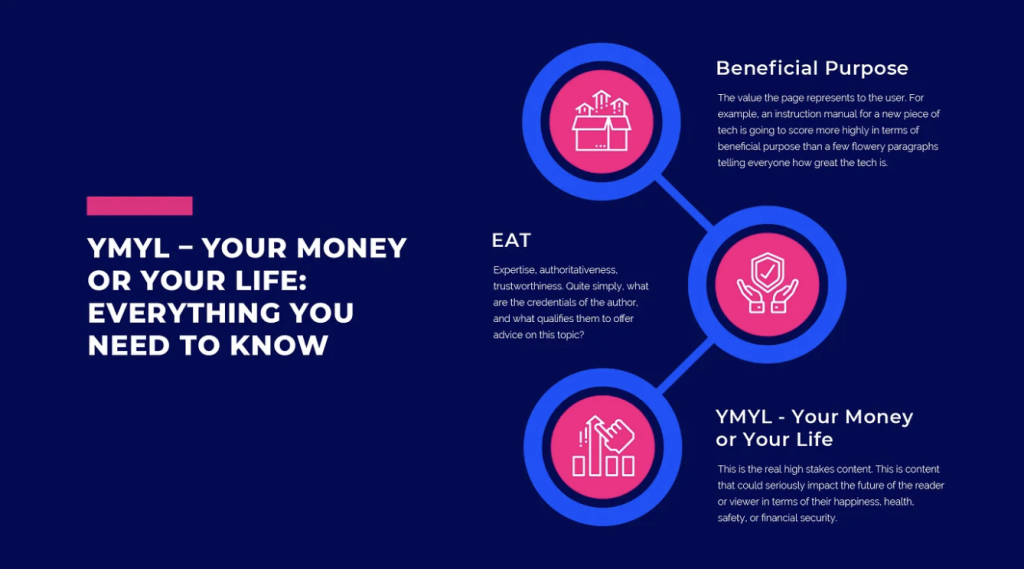Mastering Fintech SEO: A Comprehensive Guide for Growth
Welcome to the era of Fintech revolution, where the intersection of finance and technology is reshaping the way we manage, invest, and transact money. In this space, search engine optimization (SEO) plays a crucial role in ensuring visibility, credibility, and growth for Fintech companies. Whether you’re a budding startup or an established player, understanding Fintech SEO is essential for staying ahead in the game. This comprehensive guide will walk you through the key strategies and tactics to optimise your Fintech website for search engines and drive sustainable growth.
Understanding the Fintech Market
Before diving into SEO strategies, it’s essential to grasp the unique characteristics of the Fintech industry. Fintech encompasses a broad spectrum of financial services, including banking, payments, lending, insurance, and investment management, delivered through innovative technology platforms. The space is highly competitive, with both traditional financial institutions and agile startups vying for market share. Understanding your target audience, industry trends, and competitive landscape is fundamental to crafting an effective SEO strategy.
Conducting Keyword Research
Keyword research forms the foundation of any SEO strategy. Start by identifying relevant keywords and phrases that your target audience is likely to use when searching for Fintech products or services. Consider both broad industry terms and specific long-tail keywords that reflect your unique offerings. Tools like Google Keyword Planner, SEMrush, and Ahrefs can help you uncover valuable insights into search volume, competition, and user intent. Focus on high-intent keywords that indicate user readiness to engage or convert, such as “best Fintech savings accounts” or “secure online payments.”
You should examine the keywords that your competitors are ranking for. This can provide insights into their strategies and help you identify gaps that you can exploit. Tools like Moz and SpyFu allow you to see which keywords drive traffic to your competitors’ websites. Have a look also at long-tail keywords which are more specific and often less competitive than broad keywords. They may have lower search volumes, but they typically attract more qualified traffic. For example, “best mobile banking app for small businesses” is a long-tail keyword that could attract business owners looking for specific solutions.
Once you have a comprehensive list, prioritise the keywords based on relevance, search volume, and competition. Incorporate these keywords naturally into your website content, blog posts, meta descriptions, and other digital assets.
Keyword research is not a one-time task. It requires ongoing monitoring and adjustment. Use analytics tools to track how your content is performing for the targeted keywords. Pay attention to metrics such as organic traffic, bounce rates, and conversion rates. If certain keywords are not delivering the expected results, be prepared to refine your strategy.
Optimising On-Page SEO
On-page SEO plays a vital role in ensuring that fintech companies’ websites are easily discoverable by potential customers. Particularly important in this context is the concept of “Your Money, Your Life” (YMYL) content, which refers to pages that can impact a person’s future happiness, health, financial stability, or safety. Given the sensitive nature of financial content, fintech companies must prioritize YMYL considerations to build trust and credibility while optimizing their on-page SEO.
YMYL content is a term coined by Google to describe webpages that could influence users’ well-being. In fintech, this includes content related to banking, investments, insurance, loans, and other financial services. Google places higher standards on YMYL content, emphasising the need for expertise, authoritativeness, and trustworthiness (E-A-T). This focus is due to the significant impact such content can have on users’ financial decisions and overall quality of life.
Creating high-quality, informative, and accurate content is the cornerstone of on-page SEO for YMYL pages. Fintech companies should ensure that their content is well-researched, detailed, and provides real value to users. This not only helps in achieving higher search engine rankings but also builds trust with the audience. For instance, a comprehensive guide on “Understanding Personal Loans” or an in-depth analysis of “Investment Strategies for 2024” can establish authority and attract organic traffic.

Authoritative and Credible Sources
To meet the E-A-T criteria, fintech content must be written by experts or reviewed by professionals in the field. Including author bios, credentials, and links to authoritative sources can enhance the credibility of the content. Additionally, partnering with industry experts for guest posts or interviews can further bolster the site’s authority.
Fintech encompasses a wide range of complex subjects, from blockchain and cryptocurrencies to digital banking, investment technologies, and regulatory compliance. These topics are not only intricate but also constantly evolving. Experts with deep industry knowledge are essential to accurately explain these concepts. Their understanding ensures that the content is not only technically correct but also comprehensive, providing readers with valuable insights that go beyond surface-level explanations. This enhances trust which is a crucial factor in the financial industry. Consumers and businesses are understandably cautious when it comes to financial matters, and they seek information from sources they can trust. Expert-written content lends credibility to fintech companies, as it demonstrates a high level of knowledge and reliability. When content is authored by industry professionals or those with substantial experience, it reassures readers that the information is accurate and trustworthy, which is essential for building and maintaining consumer confidence.
The fintech sector is heavily regulated, with stringent guidelines governing financial transactions, data privacy, and consumer protection. Creating content that is compliant with these regulations is a challenging task that requires a thorough understanding of the legal landscape. Experts who are familiar with regulatory requirements can ensure that the content adheres to all relevant laws and standards. This not only prevents potential legal issues but also builds trust with an audience that expects transparency and adherence to regulatory standards.
Providing In-Depth Analysis and Insights
Experts bring a wealth of experience and a unique perspective to their writing. They can provide in-depth analysis and insights that non-experts might overlook. This level of detail is particularly valuable in the fintech industry, where readers are often looking for comprehensive information to make informed decisions. Expert writers can dissect trends, predict future developments, and offer strategic advice, thereby positioning their content as a go-to resource for industry stakeholders.
Clear and Transparent Information
Transparency is critical for YMYL content. Fintech companies should clearly present information about their products and services, including terms and conditions, fees, and potential risks. This transparency not only helps users make informed decisions but also improves the site’s trustworthiness in the eyes of search engines.
Structured Data Markup
Implementing structured data markup (schema) is essential for helping search engines understand the content on fintech websites. Using schema for financial products, reviews, and FAQs can enhance how content is displayed in search results, potentially leading to higher click-through rates. Rich snippets, such as star ratings for product reviews or detailed information about financial offerings, can make a fintech site stand out.
Building Quality Backlinks
Backlinks are a crucial ranking factor in Google’s algorithm, signalling trust, authority, and relevance to search engines. Focus on acquiring high-quality backlinks from reputable websites within the Fintech industry, financial publications, tech blogs, and authoritative domains. Reach out to relevant influencers, journalists, and bloggers to pitch guest post opportunities, contribute expert insights, or collaborate on industry reports and studies. Additionally, leverage your existing network, partnerships, and PR initiatives to earn valuable backlinks and enhance your website’s authority and credibility.
Optimising for Mobile and Voice Search
With the proliferation of smartphones and voice-enabled devices, optimising for mobile and voice search is no longer optional—it’s imperative. Ensure that your Fintech website is mobile-responsive and delivers a seamless user experience across devices and screen sizes. Optimise your content for voice search queries by targeting conversational keywords and natural language phrases that mirror how users speak. Consider creating FAQ pages, voice-optimised content, and featured snippets to capture voice search traffic and enhance your visibility in voice search results.
Leveraging Local SEO
For Fintech companies with a physical presence or targeting specific geographic markets, local SEO can be a game-changer. Claim and optimise your Google My Business listing with accurate business information, including your address, phone number, and business hours. Encourage satisfied customers to leave positive reviews and ratings, which can boost your local search rankings and credibility. Additionally, optimise your website’s content and metadata for location-based keywords and create locally-focused landing pages to target users searching for Fintech services in your area.
Monitoring and Measuring Performance
Effective SEO is an ongoing process that requires continuous monitoring, analysis, and optimization. Use tools like Google Analytics, Google Search Console, and third-party SEO platforms to track key metrics such as organic traffic, keyword rankings, backlink profile, and user engagement. Monitor your website’s performance closely, identify areas for improvement, and iterate on your SEO strategy accordingly. Stay informed about algorithm updates, industry trends, and competitor activities to stay ahead of the curve and maintain your competitive edge in the ever-evolving Fintech landscape.
In conclusion, mastering Fintech SEO is essential for driving organic traffic, generating leads, and fostering sustainable growth for your Fintech business. By understanding your audience, conducting thorough keyword research, optimising your website and content, and leveraging off-page SEO tactics, you can improve your visibility, authority, and relevance in search engine results. Keep experimenting, learning, and adapting to changes in the SEO landscape to stay ahead of the competition and maximise your impact in the dynamic world of Fintech.
Do you want to know more on how to improve your Fintech brand’s visibility on Google?
Get in touch today for a free consultation.



